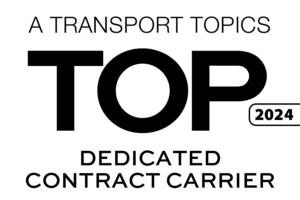
Trucking serves as the lifeline between businesses and consumers. As the industry kicks off the year, profound transformation is on the horizon in 2024 for the trucking landscape. Technology, regulations, and market dynamics will drive the industry into innovation, requiring adaptation to new norms and resilience to change and challenges.
Buckle up for the journey ahead in 2024 in the logistics and trucking industry.
Technology at the Forefront
Technology is reshaping the entire ecosystem in the trucking industry. Autonomous vehicles, artificial intelligence, and advanced telematics are driving the industry into a new era of improved efficiency and safety. While automated driving systems continue to evolve, decreasing the number of accidents and improving fuel efficiency, artificial intelligence is optimizing routes and providing real-time data that allows for more efficient and faster decision-making.
As another player with solid technology developments, Internet of Things (IoT) devices allow for predictive maintenance, reducing the likelihood of unexpected breakdowns and ensuring that goods reach their destination on time.
In the new year, the technology revolution will require drivers to become comfortable with new tools, such as digital dashboards. Technical aptitude will be valuable for those looking to enter the industry.
Autonomous trucks can be a subject that makes many nervous, considering the questions related to job displacement, regulatory frameworks, and public acceptance. However, fully autonomous trucks are yet to be standard, but in 2024, significant strides are expected to be made in the area. Some companies are already testing and deploying semi-autonomous trucks on highways, demonstrating the potential for increased productivity and reduced workforce cost.
Sustainability Takes the Wheel
Sustainability is at a crossroads with the trucking industry. It is no longer a fringe concern; it is a driving force. Over the last few years, concerns about climate change and environmental impact have driven the industry towards greener practices.
Truck manufacturers are investing resources into cleaner technologies, making electric trucks viable for all hauls. With government incentives and the accelerating adoption of lower battery costs, alternative fuel options like electric, natural gas, and hydrogen are gaining traction.
In the future of sustainability in the trucking and logistics industry, alternative fuels, such as hydrogen, are being explored and considered another sustainable transportation option.
Sustainable practices and the electrification of fleets don’t just impact the environment by reducing carbon emissions.
Still, they also help companies position themselves favorably in a market increasingly driven by environmentally conscious companies and consumers. Sustainable practices are a strategic move to a future-proof business against environmental regulations and the evolution of consumers.
Regulatory landscape and marketing dynamics
The regulatory landscape in the trucking industry is continuously evolving, adapting to technological advancements and addressing concerns related to safety, environmental impact, and labor practices. Around the world, governments are working to establish clear regulations and standards for the fast-evolving technologies on the horizon, such as autonomous trucks. Being able to integrate the technologies in trucking safely is a top priority.
Also, in 2024, the Federal Motor Carrier Safety Administration’s (FMCSA) Compliance, Safety, Accountability (CSA) program overhaul continues, with changes to the Safety Measurement System and the Safety Fitness Determination process.
Companies must invest in cleaner technologies as emission standards become more rigid. Trucking companies and logistics businesses must stay up to date as regulations change. This is important not only to remain compliant but to position themselves as responsible corporate citizens, which can directly affect their brand and business.
Workforce Trends
The same technologies that promise to bring sustainability and efficiency to the industry are also sparking discussions about the future of the workforce, bringing up concerns about job displacements. With the introduction and development of artificial intelligence, trucking, and logistics companies need to focus on ensuring smooth transitions for the workforce as they introduce technologies.
Training programs and up-skilling initiatives will be crucial to transitioning the existing workforce of truck drivers into the changing landscape. They must remain relevant in the industry as it experiences a technological revolution. Creating a continuous learning and training culture can support the workforce as it embraces new technologies. A smooth transition is beneficial for the drivers and the trucking companies.
Diversity in the driver workforce is also an essential topic in the industry. Women and minorities are still underrepresented in trucking, and creating initiatives and welcoming environments will be critical in 2024 to continue to open doors to a more diverse and inclusive industry.
The Key to Success in 2024: Resilience
In 2020, during the COVID-19 pandemic, vulnerabilities in global supply chains exposed the need for greater resilience. In 2024, trucking companies need to reevaluate their supply chain strategies, putting flexibility and adaptability at the forefront. To thrive in this dynamic environment, adaptability is the key.
Technology plays a pivotal role in achieving this, with real-time tracking, data analytics, and predictive modeling enabling companies to respond efficiently to disruptions and stay ahead of the curve. Embracing sustainability and investing in driver well-being are ethical imperatives and smart business decisions.
The road ahead is challenging, but for those who navigate it strategically, the destination promises a more efficient, sustainable, and resilient future for the trucking industry.

